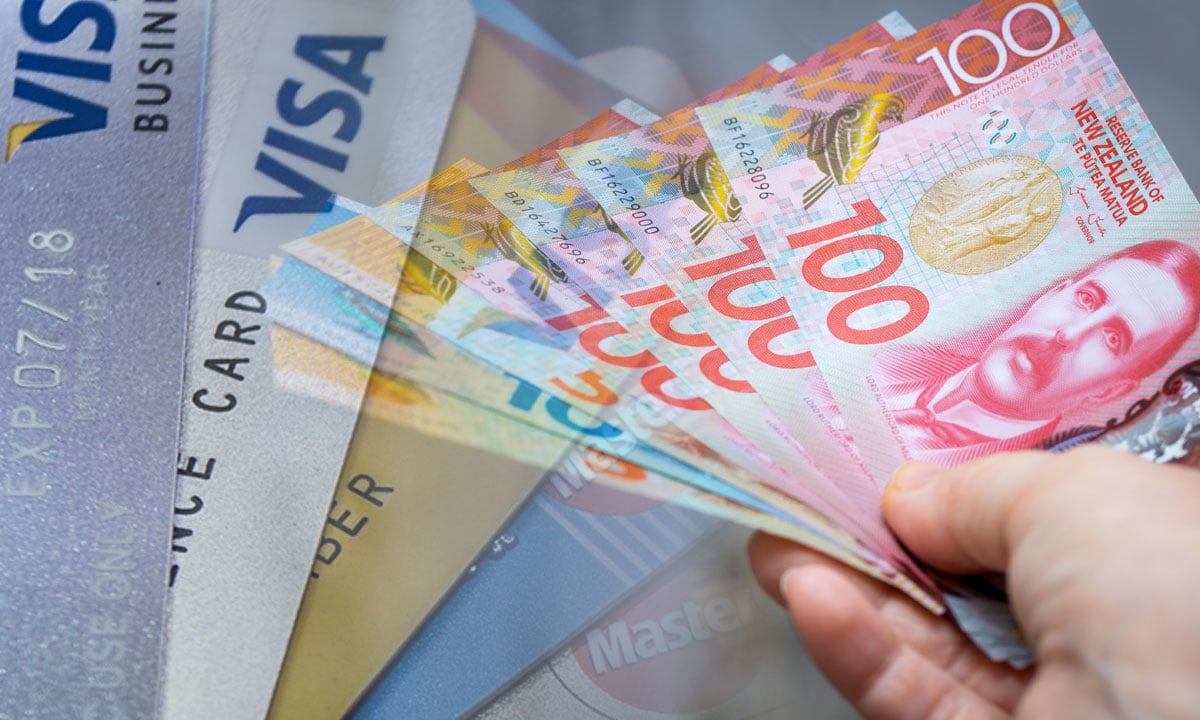When it comes to making a purchase or consolidating debt, there are a few options available—two of the most common being credit cards and personal loans. While both can be useful tools, they each have their pros and cons. So, which one should you choose?
In this blog, we’ll compare personal loans and credit cards to help you decide which is the right option for your next big purchase, whether that’s a new appliance, a holiday, or managing existing debt.
The Case for Credit Cards

Credit cards are one of the most popular payment methods today. They’re convenient, widely accepted, and give you a flexible way to make purchases. However, this flexibility can also be a double-edged sword if you’re not careful with your repayments.
Why Use a Credit Card?
- Short-Term Purchases: If you plan to pay off the balance in full within a month or two, credit cards can be a great option. Many cards offer interest-free periods (usually up to 55 days).
- Rewards and Perks: Many credit cards come with rewards points, cashback, or other benefits, which could make using them appealing for those who pay off their balance in full every month.
- Instant Access: Credit cards offer instant access to funds whenever you need them, without any paperwork or approval process. However, you do need to go through an application process to get one in the first place.
Drawbacks to Credit Cards
- High Interest Rates: If you carry a balance, credit card interest rates can be sky-high, often exceeding 20% annually. This can lead to you paying significantly more for your purchases than you originally intended.
- Minimum Payments Trap: Only making minimum payments means you could be paying off your debt for years—and paying a lot more in interest.
The Case for Personal Loans

On the other hand, personal loans offer a different approach to borrowing money. Instead of paying as you go like a credit card, you’ll take out a fixed amount of money and repay it in regular installments, usually over several months or years.
Why Choose a Personal Loan?
- Lower Interest Rates: Personal loan rates are typically much lower than credit card interest rates. With Loan Direct, our low interest loans start from 9.95% (secured) and 11.95% (unsecured), offering a much cheaper way to borrow money, especially if you’re consolidating debt.
- Fixed Repayments: Personal loans provide fixed repayment amounts over a set period. This means you’ll know exactly how much you need to pay each month, which can help with budgeting and avoiding surprise costs.
- Debt Consolidation: If you have multiple credit cards or loans, consolidating them into a personal loan can be a smart move. This often reduces your interest rates and simplifies your payments into a single, manageable amount.
- Larger Loan Amounts: Depending on your needs and eligibility, personal loans often allow you to borrow larger sums than credit cards, with amounts ranging from $75,000 unsecured to $150,000 secured.
Drawbacks of Personal Loans
- Approval Process: While getting a personal loan is relatively straightforward, the approval process takes a bit more time compared to simply using a credit card. You’ll need to provide proof of income, employment, and undergo a credit check.
- Set Repayment Periods: You’ll be committed to a repayment schedule, which could restrict your financial flexibility.
Real-Life Example: How Personal Loans Can Save You Money

A great example of how personal loans can be a smarter financial choice comes from a recent customer of Loan Direct.
Jarod was servicing multiple debts at once, paying $469 per week across eight different lines of credit—including several credit cards—which left him with virtually no disposable income.
Loan Direct stepped in and swiftly arranged a single debt consolidation facility that paid out all of Jarod’s existing debts.
The new consolidated loan required weekly repayments of just $235, slashing his outgoings by $234 each week! This left him with a small cash surplus, which he used to tidy up some loose ends around his home.
As a loan broker, Loan Direct doesn’t lend directly but leverages its network of multiple lenders to secure interest rates starting at 9.95%, helping clients like Jarod save substantially compared to their previous high‐rate debts.
When to Choose a Personal Loan Over a Credit Card
If you’re looking at financing a large purchase or consolidating existing debt, here are some situations where a personal loan might be the better choice:
- High-interest debt: If you’re struggling with credit card debt that’s hard to pay off, consolidating it into a low-interest personal loan could save you money in the long run.
- Large expenses: For big-ticket items like renovations, a car, or a holiday, a personal loan gives you the ability to spread the cost over time with more predictable repayments.
- Stable income: Personal loans work well when you have a stable income and can commit to regular repayments.
How Loan Direct Can Help

At Loan Direct, we’re not a lender, but a loan broker. This means we can help you compare options from multiple lenders, increasing your chances of getting a better deal. We offer low interest options and flexible repayment terms, so you can find the loan that fits your needs.
Our process is simple, and we can help you secure personal loan rates starting from 9.95% for secured loans and 11.95% for unsecured loans. Plus, with fast approval (usually within 1-2 hours*) and same-day payout*, you won’t be left waiting.
*Subject to responsible lending checks and criteria.
FAQ - Credit Cards vs Personal Loans
Credit card pros (interest-free periods, perks, instant access) and cons (high interest, minimum payment traps)
Personal loan pros (lower rates, fixed repayments, larger amounts, debt consolidation) and cons (approval process, locked repayment terms)
It depends on your needs. Credit cards are great for short-term spending if you can repay the balance quickly, as they often come with interest-free periods and rewards. However, if you’re carrying a balance or need to borrow a larger amount, a personal loan is usually the smarter choice. Personal loans offer lower interest rates, fixed repayments, and are ideal for larger expenses or debt consolidation—helping you save money in the long run.
Pros:
- Instant access to funds – No paperwork or waiting, you can use your credit limit anytime once you’ve been approved.
- Interest-free periods – Many cards offer up to 55 days interest-free if you pay your balance in full each month.
- Rewards and perks – Earn points, cashback, or travel benefits when you spend.
Cons:
- High interest rates – Carrying a balance attracts interest rates often exceeding 20% p.a.
- Debt traps – Making only minimum payments can leave you in debt for years and cost you much more over time.
- Overspending risk – Easy access to credit can encourage unnecessary spending if not managed carefully.
Pros:
- Lower interest rates – Typically lower than credit card rates, starting from 9.95% (secured)
- Fixed repayments – Set payments make it easier to budget and avoid surprises.
- Debt consolidation – Combine multiple debts into one lower-cost, manageable repayment.
- Larger loan amounts – Borrow more than you typically could with a credit card.
Cons:
- Approval process – Requires application, income verification, and credit checks, so it takes a little longer to access funds.
- Locked-in repayments – You must commit to fixed repayment terms, which reduces financial flexibility.
